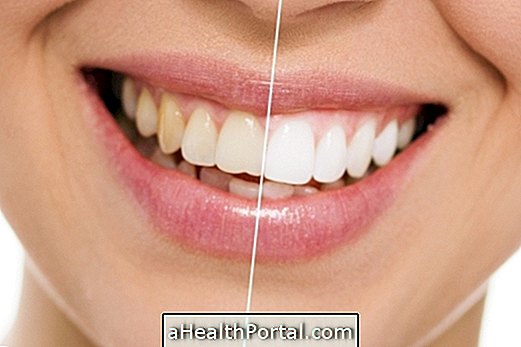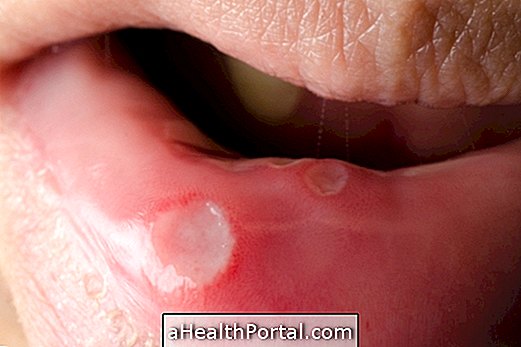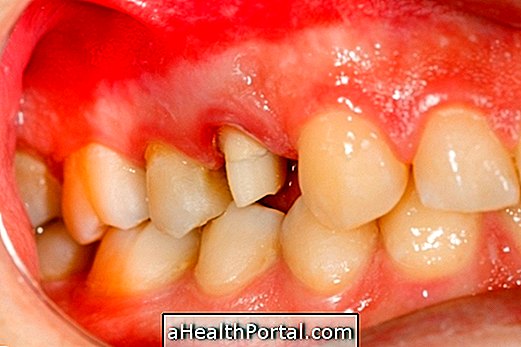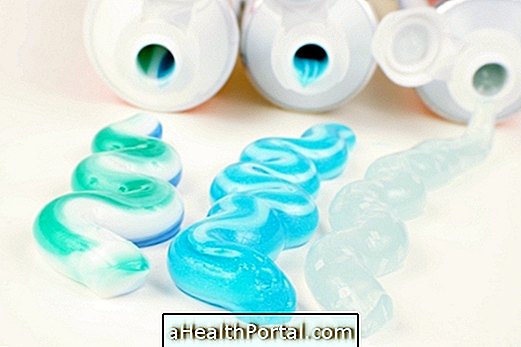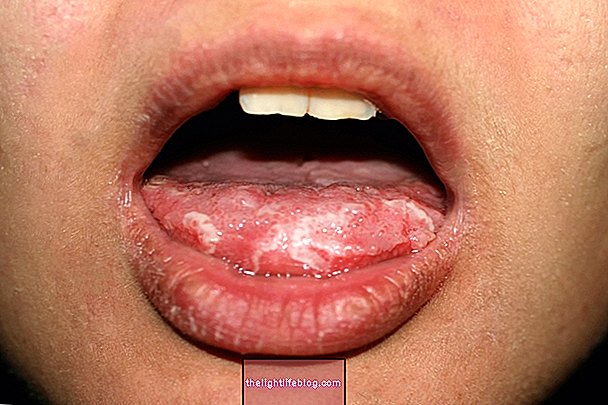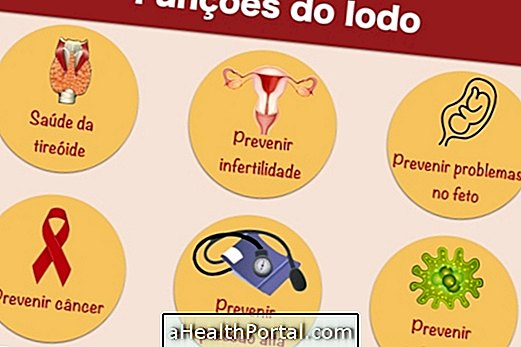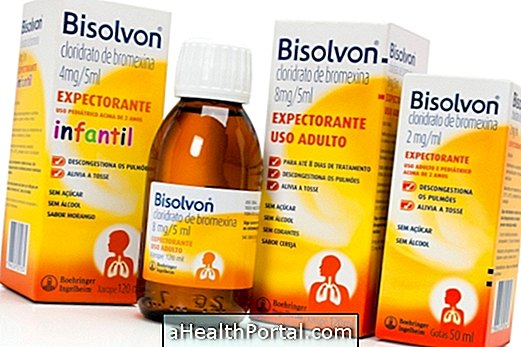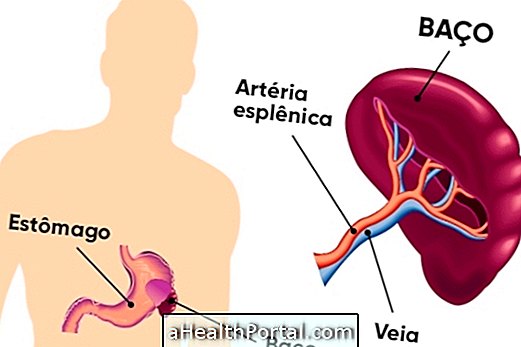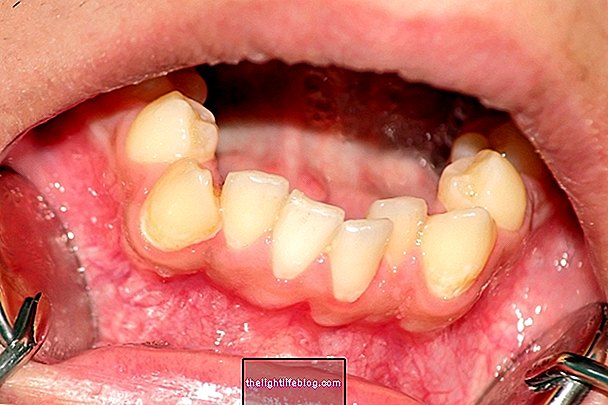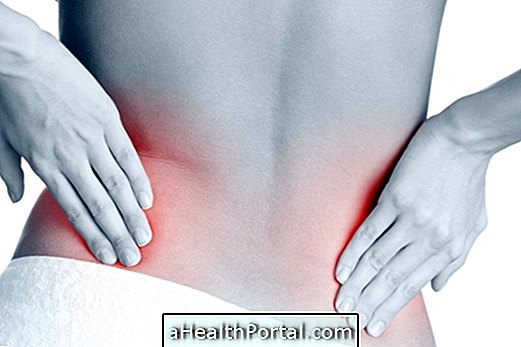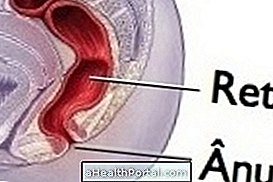To relieve toothache it is important to identify what may be causing the pain, which may happen due to the rest of the food between the teeth, for example, being recommended in this case to floss and brush your teeth. In addition, other strategies that help relieve toothache are mouthwash with water and salt or ginger and propolis tea, for example, as they have analgesic and anti-inflammatory properties, helping to relieve toothache.
However, when the pain is frequent, it does not go away even with homemade measures or when there are the appearance of other symptoms such as headache, bleeding or pus, for example, it is important to consult the dentist so that the cause can be identified and the treatment started. most appropriate treatment, which can be through the use of antibiotics or removal of the tooth.
Here are some tips to help relieve toothache:
1. Floss and brush your teeth

Flossing is important to remove any leftover food that has got stuck between your teeth and that may be leaving the area inflamed and sore. After passing the wire, you should then brush your teeth carefully, avoiding putting too much force on the painful area. Here's how to brush your teeth the right way.
2. Rinsing salted water

Rinsing with salted water will help to clean the mouth and fight microorganisms that may be in greater quantity in the mouth, helping to relieve symptoms. To make the mouthwash, just dilute 1 teaspoon of salt in 1 glass of water and rinse the mixture for 30 seconds every hour, taking care not to swallow the water.
3. Use cloves

Clove oil has analgesic and antiseptic properties, helping to fight infections and relieve pain and inflammation. To use it, mix 1 to 2 drops of clove oil with 1 or 2 drops of other vegetable oil and apply directly to the tooth that is hurting. Another option is to chew a clove directly on the affected tooth.
In addition, cloves also have natural aromatic properties and, therefore, can also help to improve breath. Check out other benefits of cloves.
4. Rinsing ginger tea and propolis

Ginger tea has soothing and anti-inflammatory properties, while propolis has healing and antibacterial action, which is why both help to relieve pain and clean the inflamed area. To make the mouthwash, add 5 drops of propolis to each cup of ginger tea, mouthwashing the mixture twice a day.
5. Put ice

To help relieve pain faster, an ice pack can be placed on the face, close to the painful area, taking care not to burn the skin.The ice must remain in place for 15 minutes, and the process must be repeated 3 times a day.
6. Taking medicine

The use of analgesic and anti-inflammatory remedies, such as Paracetamol or Ibuprofen, can be indicated by the dentist when the toothache is constant and does not pass with the natural measures. It is important to remember that these remedies should be used only by adults, for a short period of time and under the guidance of a doctor.
Test your knowledge
To relieve toothache, it is also important to have good oral hygiene. So take our online test to assess your knowledge:
- 1
- 2
- 3
- 4
- 5
- 6
- 7
- 8
Oral health: do you know how to take care of your teeth?
Start the test


It is important to consult the dentist:
- Every 2 years.
- Every 6 months.
- Every 3 months.
- When you are in pain or some other symptom.

Floss should be used every day because:
- Prevents the appearance of cavities between teeth.
- Prevents the development of bad breath.
- Prevents inflammation of the gums.
- All of the above.

How long do I need to brush my teeth to ensure proper cleaning?
- 30 seconds.
- 5 minutes.
- Minimum of 2 minutes.
- Minimum of 1 minute.

Bad breath can be caused by:
- Presence of cavities.
- Bleeding gums.
- Gastrointestinal problems like heartburn or reflux.
- All of the above.

How often is it advisable to change the toothbrush?
- Once a year.
- Every 6 months.
- Every 3 months.
- Only when the bristles are damaged or dirty.

What can cause problems with teeth and gums?
- The accumulation of plaque.
- Have a high sugar diet.
- Have poor oral hygiene.
- All of the above.

Inflammation of the gums is usually caused by:
- Excessive saliva production.
- Accumulation of plaque.
- Tartar build-up on teeth.
- Options B and C are correct.

In addition to the teeth, another very important part that you should never forget to brush is:
- Tongue.
- Cheeks.
- Palate.
- Lip.
Was this information helpful?
Yes No
Your opinion is important! Write here how we can improve our text:
Any questions? Click here to be answered.
Email in which you want to receive a reply:
Check the confirmation email we sent you.
Your name:
Reason for visit:
--- Choose your reason --- DiseaseLive betterHelp another personGain knowledge
Are you a health professional?
NoMedicalPharmaceuticalsNurseNutritionistBiomedicalPhysiotherapistBeauticianOther
Bibliography
- KAUR, K; KAUSHAL, S .. Phytochemistry and pharmacological aspects of Syzygium aromaticum: A review. Journal of Pharmacognosy and Phytochemistry. Vol.1. 398-406, 2019
- MOHAMMAD, Karimi. Grandma Remedies and Herbal Medicines for Relieving Toothache. Open Access Journal of Dental Sciences. Vol.1. 2016
- GRÜNWALD, Jörg; JÄNICKE, Christof. The green pharmacy. Everest Editora, 2009. 198-199; 324-325.
